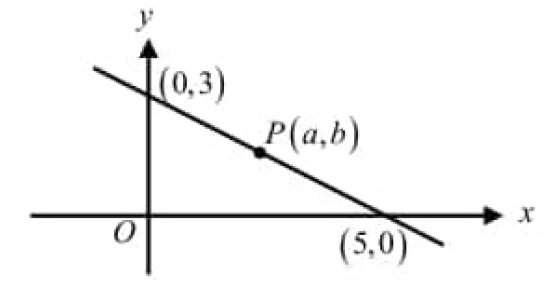NATURE OF ROOTS OF QUADRATIC EQUATION DISCRIMINANT
The roots of the quadratic equation ax2 +bx +c = 0 , a ≠ 0 are found using the formula x = [-b ± √(b2 - 4ac)]/2a
Here, b2 - 4ac called as the discriminant (which is denoted by D ) of the quadratic equation, decides the nature of roots as follows
|
Value of discriminant Δ = b2 - 4ac Δ > 0 Δ = 0 Δ < 0 |
Nature of roots Real and unequal roots Real and equal roots No real roots |
Question :
Determine the nature of the roots for the following quadratic equations
(i) 15x2 + 11x + 2 = 0
Solution :
By comparing the given quadratic equation with the general form of quadratic equation.
ax2 + bx + c = 0
a = 15, b = 11 and c = 2
Δ = b2 - 4ac
Δ = 112 - 4(15)(2)
Δ = 121 - 120
Δ = 1 > 0
Hence the roots are real and unequal.
(ii) x2 − x − 1 = 0
Solution :
a = 1, b = -1 and c = -1
Δ = b2 - 4ac
Δ = (-1)2 - 4(1)(-1)
Δ = 1 + 4
Δ = 5 > 0
Hence the roots are real and unequal.
(iii) √2t2 −3t + 3√2 = 0
Solution :
a = √2, b = -3 and c = 3√2
Δ = b2 - 4ac
Δ = (-3)2 - 4(√2)(3√2)
Δ = 9 - 12(2)
Δ = 9 - 24
Δ = -15 < 0
Hence it has no real roots.
(iv) 9y2 − 6√2 y + 2 = 0
Solution :
a = 9, b = − 6√2 and c = 2
Δ = b2 - 4ac
Δ = (− 6√2)2 - 4(9)(2)
Δ = 36(2) - 72
Δ = 72 - 72
Δ = 0
Hence it has no real and equal roots.
(v) 9a2b2x2 −24abcdx + 16c2d2 = 0 , a ≠ 0 , b ≠ 0
Solution :
a = 9a2b2, b = −24abcd and c = 16c2d2
Δ = b2 - 4ac
Δ = ( −24abcd)2 - 4(9a2b2)(16c2d2)
Δ = 576 a2b2c2d2 - 576 a2b2c2d2
Δ = 0
Hence it has no real and equal roots.
Kindly mail your feedback to v4formath@gmail.com
We always appreciate your feedback.
©All rights reserved. onlinemath4all.com
Recent Articles
-
Integration by Substitution Problems and Solutions (Part - 3)
Apr 04, 25 08:10 AM
Integration by Substitution Problems and Solutions (Part - 3) -
Integration by Substitution Problems and Solutions (Part - 2)
Apr 04, 25 08:10 AM
Integration by Substitution Problems and Solutions (Part - 2) -
Digital SAT Math Problems and Solutions (Part - 134)
Apr 02, 25 12:40 AM
Digital SAT Math Problems and Solutions (Part - 134)
